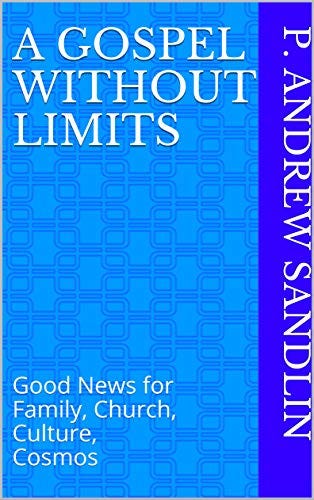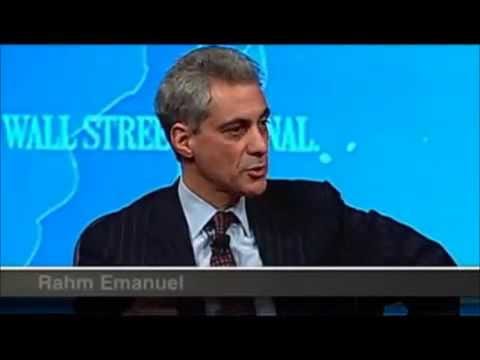What the COVID-19 Drama Has Revealed About Our Institutional Character
Exposing the blatant public failures of church and state
Dear Friends and Supporters:
Even globally rapacious viruses aren’t unmitigated disasters. Despite their havoc, they, like most other crises, reveal facts either hidden or neglected during more normal times. A crisis, so goes an old adage, doesn’t create character so much as reveal it. Similarly, social crises don’t create institutional character so much as reveal what was there all the time.
COVID-19 has disclosed institutional character, and the disclosures have not been pleasant. As I pointed out in the podcast “Thinking Christianly About COVID” at Kuyperian Commentary with my good friend Pastor Uriesou Brito, if there’s been any upside to this entire drama it has been to reveal the paltry worldview of much of the church and the pernicious worldview of a vast number of politicians.
The two chief offending institutions have, in fact, been the church and the state. Let’s take them in order.
What the COVID-19 Drama Has Revealed About the Church
By “the church” I denote the conservative, Protestant church, merely because that is my crowd. (Roman Catholicism has had its own astute critics. Rusty Reno has been among the most vocal within that community.) What we have learned about the conservative Protestant church isn’t striking, unprecedented news. However, public implications of what many of us already knew about the church have been flagrant and tragic. Here are two:
Otherworldly dualism
First, the church has been dualistic. It has interpreted the culture and even the physical world as secondary to “higher, heavenly” purposes. This is an obviously contra-biblical attitude, since the Bible is every bit as concerned with this world as with the next, and actually more so. But dualistic otherworldliness can fly under the radar as long as society is productive, peaceful, and prosperous. Cultural crises expose the theological bankruptcy of dualism.
When COVID-19 became a global media hysteria, a large swath of the church lacked the theological framework for understanding and addressing it. A lot of dualists think that they are avoiding worldliness by avoiding the Lordship of Christ in all of life, but what actually happens is that they become worldly in those very cultural concerns that they deem irrelevant to the Christian. Being otherworldly, they leave a vacuum for the thisworldly, and that vacuum is quickly filled by contra-Christian premises.
The immediate response of the political, epidemiological, and media elites was to demand centralized political action: quarantine the entire society, and soon prohibit public Christian (and other) worship. The reaction of most Christians, and the church, was not to assess this political response from a distinctly Christian worldview, but to default to the elite experts. The issue is not whether the experts were wrong, but whether the default of the church should have been to judge them incontestably right. Many churches would have been equipped to assess a controversy over justification by faith alone, or dismiss an adulterous pastor, or cast an institutional vision for the next decade. These are appropriate “spiritual” topics. A global virus is not. Nor is how to react to politicians whose choices impinge on public worship. These are things you needn’t think about. Until you do.
Modern churches are long on organizational methodology but short on worldview cultivation. This means that when a crisis emerged that demanded serious worldview thinking, they failed. They failed the explicit test of the COVID-19 drama because they failed the unwritten test of worldview thinking they should have had before the drama.
Ignorance of sphere sovereignty
This leads a second embarrassing expose, which flows directly from the first. The church doesn’t even know its own God-appointed calling as a bold, independent institution in culture. The saints share in the present cosmic reign of Jesus Christ over the earth as it comes to fore in the church. Paul writes of
… the exceeding greatness of His [God’s] power toward us who believe, according to the working of His mighty power which He worked in Christ when He raised Him from the dead and seated Him at His right hand in the heavenly places, far above all principality and power and might and dominion [words for the angelic ruling powers and earthly politicians], and every name that is named, not only in this age but also in that which is to come.
And He put all things under His feet, and gave Him to be head over all things to the church, which is His body, the fullness of Him who fills all in all. (Eph. 1:19–23, emphasis supplied)
These words are so foreign to the thinking of the modern church that the most they can do is interpret them in a dualistic way, as though the church reigns in the heavenly mists of a de-cultured realm, getting people saved and baptized and ready for heaven. Nothing could emaciate Paul’s meaning more.
For all its excesses and misdirections, the medieval Roman Church grasped the truth of the church’s regal calling. So did the early Calvinists, and the Puritans and Scottish Covenanters among their successors. The church is a central institution in God’s work in the world. If anything, they often exaggerated this by identifying the church with the kingdom of God, a momentous error.
More momentous, however, was the inadvertent Protestant error of enlisting the power of the European state to marginalize the power of the Roman Church. They pitted politicians against the church, since the former were the only institution powerful enough to crimp the latter. This decision exalted European princes and kings, many of them sympathetic to the Reformation cause, at the expense of the Roman church. The arrangement worked to the Protestant advantage — until the 18th century Enlightenment started to secularize the state. When the state turned aggressively against the church, first in the French Revolution, it didn’t turn only against the Roman Church. The state grew robust and dictatorial, while the church grew culturally weak and emaciated, even where it grew in numbers.
Nonetheless, the great Roman Catholic historian of Christian culture Christoper Dawson noted that after the Reformation, it was the Calvinists who carried on among the Protestants the independent authority of the church. They considered the church a powerful institution central to society. While they recognized that, according to Romans 13, the state is God’s minister authorized to bear the sword against public, external evil, they knew that the church bears the keys of the kingdom, and inherently possesses unique authority over the enforcement of orthodoxy, the practice of public worship, and much else.
Jesus is Lord of the church, and to posit somebody or something else as lord of the church, to permit it veto power over public worship and the kingdom’s keys, is to commit idolatry.
The widespread church response to COVID-19 has not been to assert its independent authority under the Lord, but to default to state authority. Had the church understood sphere sovereignty, she would have recognized that she is a distinct institution with a distinct constitution, features, and responsibility. She would have known that exercising her own potent jurisdiction during the drama was just as important as, probably more important than, the state exercising it. Pastor Uri Brito has been one of the exceptions:
As churches all across the country re-open, Kansas City, Mo. is demanding that churchgoers turn over membership lists along with personal data as a way of tracking and isolating individuals exposed to COVID-19. This act is a clear violation of the fundamental nature of the church. Our loyalty is to a heavenly regime and not some local authoritarian eager for notoriety and power. We don’t need much blood to call the attention of a hungry lion, and the government (even at its local level) seeks only a sample of blood to jump at the opportunity to seize a table that belongs only to the church.
In the present drama, the church has not been pitifully marginalized by the state. The church self-marginalized by refusing to be what she is — the reigning church of the risen Lord.
The COVID-19 drama has revealed this pitiful dereliction in a striking way.
Please donate to CCL via PayPal or Venmo. God uses you to keep us going — and expanding.
What the COVID-19 Drama Has Revealed About the State
But that drama has also revealed something troubling about the state, something we already knew but have now seen in an unprecedented display in the West.
The direction of Western liberal democracy in the last century has been toward the statist ideology. By this I mean that the state is the central institution in society. The biblical view, enshrined in sphere sovereignty, is that the family, church, and state (civil magistrate) are the chief institutions in human society. The state is the least important. Why? It’s task is so limited. In Romans 13 we read:
For [civil, political] rulers are not a terror to good works, but to evil. Do you want to be unafraid of the authority? Do what is good, and you will have praise from the same. For he is God’s minister to you for good. But if you do evil, be afraid; for he does not bear the sword in vain; for he is God’s minister, an avenger to execute wrath on him who practices evil. (vv. 3–4)
The term “terror” is a translation of phobos, akin to our “phobia”; it means that which inspires fear or terror. In God’s post-fall but still ordered cosmos, the state is the only legitimate terrorist. It is for this reason that its authority and jurisdiction must be be tightly chained. The state can legitimately kill you. It had better be aware of precisely when and how it may do that.
The narrow role of politics
Romans 13 outlines the civil magistrate’s obligation: “to execute wrath on him who practices evil.” Not to create the equitable, virtuous, and prosperous society. Not to guarantee optimal health, education, and welfare. Not to redress historic grievances. Not to be the guiding, overarching meaning of society. Not to inculcate virtue. (We have a name for societies whose politics inculcates virtue: totalitarian.) A “politics of meaning,” so dear to modern Leftism, is a freeway greased toward tyranny.
Unfortunately, most of modern politics refuses to bound by biblical limits. It is statist: the central social institution is the state. Any crisis, real or imaginary, provokes politicians to think, “I must do something (anything) to fulfill my political role.” They have never been taught (or have forgotten) that their job is a vital though narrow one: assure that the civil realm conforms to the moral law of God. Because they get involved in politics to “make a difference” — that is, to accomplish goals that should be left to the individual, family, church, business, and the rest of “civil society — they feel cheated or unfulfilled by the mundaneness of their only legitimate task: restraining public evil (crime).
The staggering size of modern centralized politics, especially the federal government, is an exhibition of the modern West’s abandonment of Christian culture. The individual, family, church, and business have lazily outsourced their God-given obligations to the state. The state has, consequently, grown gluttonous with power, and when crises (actual or invented) like COVID-19 appear, they salivate (sometimes with good intentions) to flex their sword-bearing muscles. This reflects a particular political strategy encapsulated in the former Chicago mayor Rahm Emanuel’s famous retort:
The test of a constitutional republic’s commitment to individual liberty is how it exercises power during times of crisis. One could almost (but merely almost) excuse a number of politicians who initially supported the comprehensive lockdown, stampeded as they were by a hyperventilating media and death models we now know to have been catastrophically mistaken.But now that we know more (though not yet all) of the score, the additionally aggressive deprivation of civil liberties is unconscionable.
COVID-19 has blown the lid off the last vestiges of political restraint in modern centralized politics. It shows us what statist ideologues will dare to do when they are confident they can do what they want to do with few or no consequences. Let’s hope Dennis Prager is wrong that this has been “Our Dress Rehearsal for a Police State.”
Conclusion
Both church and state have, by and large, failed their respective institutional tests that COVID-19 has brought to their social classroom.
But at least the failures have been very public, so no one need harbor any doubts about the present state of both church and state.
The new CCL podcast LordshipLife targets young adults (12-19 years old) with thoughtful, direct, gracious biblical truth for today’s world. It would be great for your children or grandchildren. The latest episode is “Things That Make Bad Masters.” Why not subscribe?

Get the e-book here.
Personal

Sharon snapped this photo when we were on the train from London to Cambridge in recent years. I was lecturing for my friends at Christian Concern, for their valuable Wilberforce Academy. These are such gratifying memories.

Sharon is visiting her parents, Don and Pat Habedank, for their 60th wedding anniversary. The large anniversary party had to be postponed due to the cancelation of the venue at which the rendezvous was to be held.
My Amazon author page (print and digital) is here. You can find my sermons and lectures at my YouTube channel. Sign up to get my blog updates here. Here’s my Twitter feed. If you want to get the free exclusive hard copy publication Christian Culture, please send me a Facebook private message. The CCL phone number is 831-420-7230. Finally, the address is:
CCL, P.O Box 100, Coulterville, CA 95311
If you know of anybody who might enjoy this newsletter and subsequent ones, I’d be grateful if you asked them to sign up here.
Next week’s intended topic is: “How Individualism Leads to Tyranny.”
Stay bold, courageous, and victorious, my friends.
We are the victors.
Yours for the King,

Founder & President



